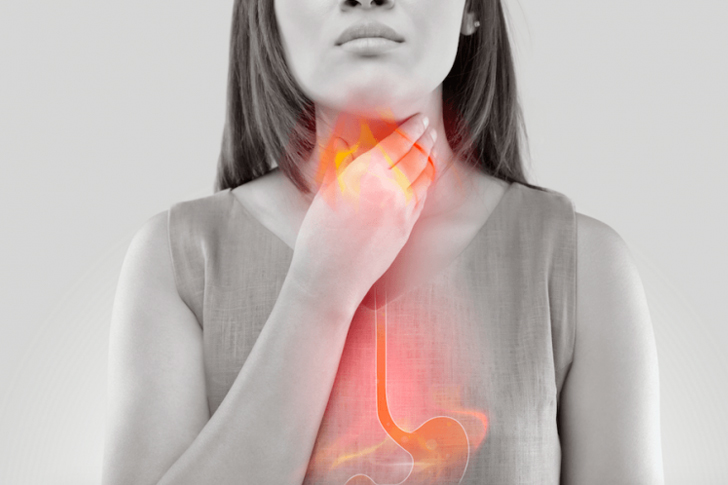Do You Know What Esophageal Cancer Is?
Esophageal cancer, originating in the tube from throat to stomach, is a serious yet less-discussed cancer type. Understanding its risks, symptoms, and treatments is crucial, as it’s aggressive and hard to diagnose early.

Understanding Esophageal Cancer
The esophagus is a hollow muscular tube that helps to move food and liquids from the throat to the stomach. Esophageal cancer typically starts in the cells lining the inside of the esophagus and can occur anywhere along its length. There are two main types of esophageal cancer, categorized based on the type of cells that are involved:
- Adenocarcinoma: This type usually begins in the cells of mucus-secreting glands in the esophagus. It most commonly affects the lower part of the esophagus and is the most prevalent type in the Western world, closely linked to Barrett’s esophagus, a condition often caused by chronic acid reflux.
- Squamous Cell Carcinoma: This type originates in the flat, thin cells that line the surface of the esophagus. This variant is more commonly seen in the upper and middle parts of the esophagus and is the most prevalent form worldwide.
Risk Factors
Several factors may increase the risk of developing esophageal cancer:
- Chronic gastroesophageal reflux disease (GERD): Long-standing acid reflux can lead to changes in the lining of the esophagus, which can increase cancer risk.
- Smoking and Alcohol Consumption: Both are significant risk factors, especially when combined.
- Obesity: Excess body weight can increase the risk of adenocarcinoma of the esophagus.
- Diet: A diet lacking fruits and vegetables can increase the risk of esophageal cancer.
- Age: Esophageal cancer is more commonly diagnosed in people aged 55 and older.
Early Signs of Esophageal Cancer
- Difficulty Swallowing (Dysphagia)
- One of the earliest signs of esophageal cancer is a feeling of difficulty swallowing or the sensation that food is sticking in your throat or chest. Initially, it might occur only with solid foods, but as the tumor grows, even liquids can become hard to swallow.
- Changes in Appetite
- Some people may experience a decrease in appetite or a change in their eating habits without a known cause.
- Mild Chest Pain or Discomfort
- Discomfort or pain in the chest, not necessarily severe, which can be mistaken for heartburn or indigestion.
- Weight Loss
- Unintentional weight loss without changes in diet or exercise habits can be an early indicator, often because swallowing difficulties lead to eating less.
- Heartburn or Indigestion
- Increases in episodes of heartburn or indigestion can be early symptoms, especially if they become progressively worse or are resistant to over-the-counter treatments.
- Persistent Cough or Hoarseness
- A cough that doesn’t go away or a hoarse voice might suggest compression or irritation of the esophagus by a tumor, or that the tumor is affecting the laryngeal nerves.
When to See a Doctor
If you experience any of these symptoms persistently, especially if you have risk factors such as long-standing acid reflux, smoking, heavy alcohol use, or a family history of gastrointestinal cancers, it’s important to consult a healthcare provider. They might recommend an endoscopy or other diagnostic tests to investigate the cause of your symptoms.
Early detection of esophageal cancer is crucial for effective treatment and can significantly improve the prognosis. If diagnosed early, treatment options like surgery, radiation, and chemotherapy can be more effective in managing the disease.
Diagnosis and Treatment
Diagnosis typically involves a combination of endoscopy, where a thin tube with a camera is inserted down the throat to look at the esophagus, and a biopsy, where a sample of tissue is taken for lab testing.
Treatment options vary based on the cancer’s stage and may include:
- Surgery: To remove the cancerous part of the esophagus.
- Radiation therapy: Often used before or after surgery, or as a palliative treatment.
- Chemotherapy: Used in conjunction with radiation therapy, either before surgery to shrink the tumor or as a palliative measure.
- Targeted therapy: Drugs that target specific aspects of cancer cells, like growth factors.
Prevention and Outlook
While not all cases of esophageal cancer can be prevented, reducing risk is possible by managing acid reflux, quitting smoking, reducing alcohol consumption, maintaining a healthy weight, and eating a balanced diet rich in fruits and vegetables.
The prognosis for esophageal cancer depends on the cancer’s stage at diagnosis. Early detection is key, which is why recognizing symptoms and managing risk factors is crucial.
Conclusion
Esophageal cancer is a challenging and serious disease, but awareness and understanding can improve early detection and outcomes. If you or someone you know is experiencing any of the symptoms mentioned above, consult a healthcare provider. Regular check-ups and managing risk factors are the best defenses against this formidable cancer.







Recent Comments